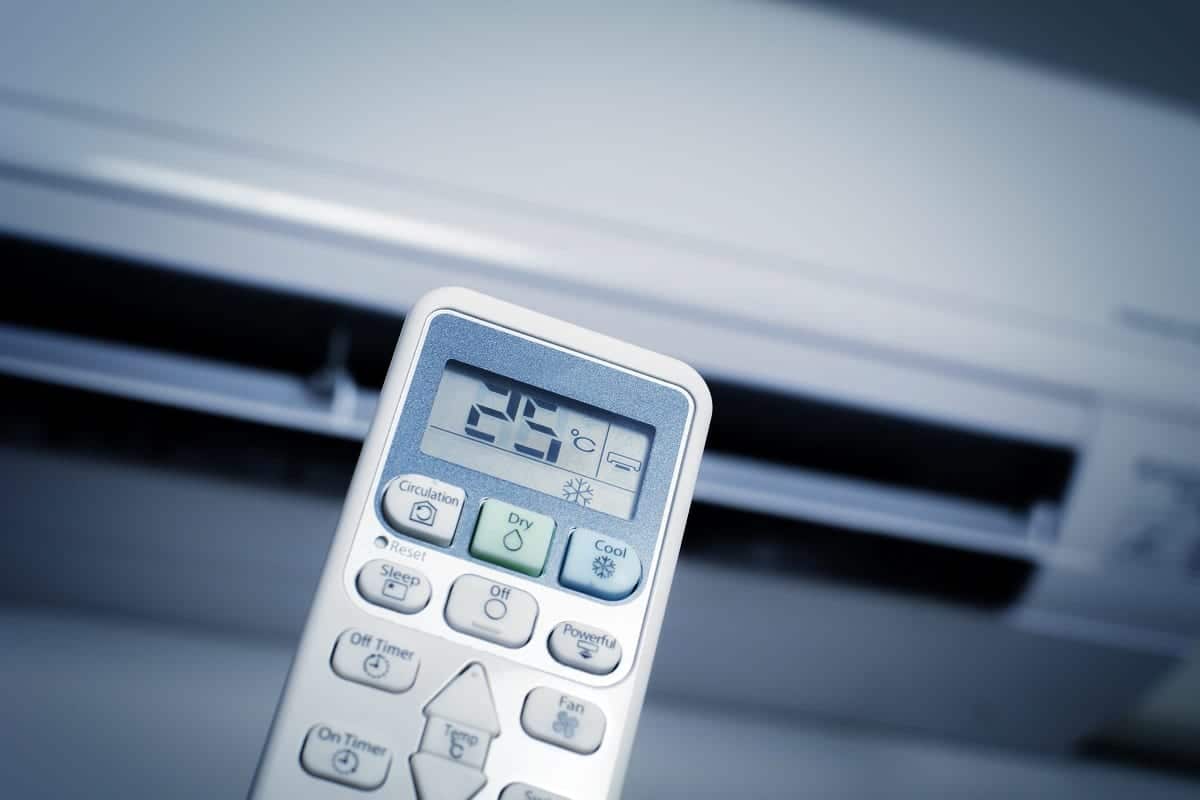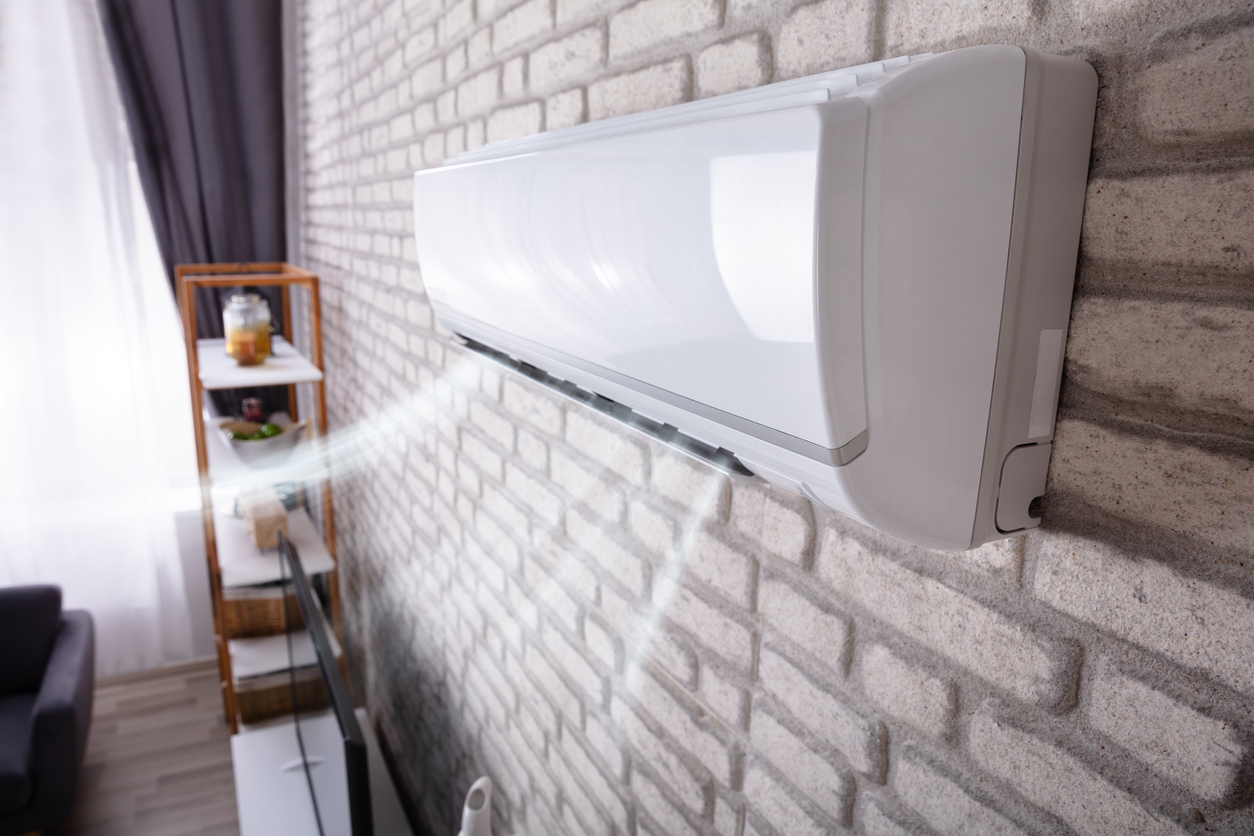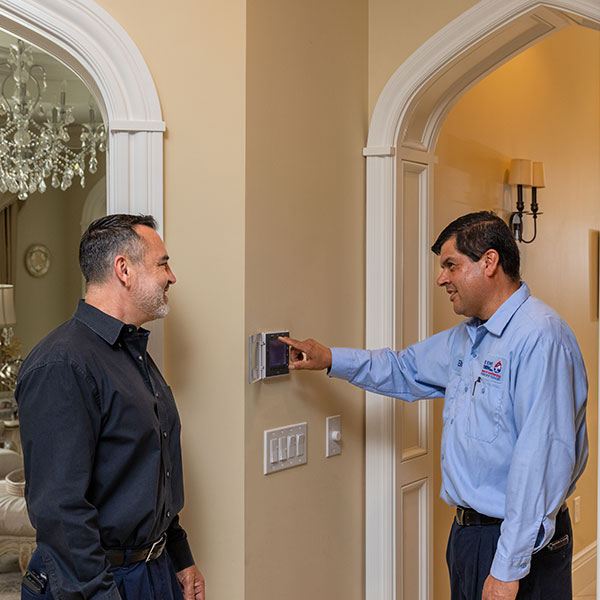When homeowners think of HVAC systems and the HVAC industry, they are likely to think of heating and cooling first. Heating and cooling provide immediate and tangible comfort and are the most talked about components of an HVAC system.
What Does V Stand For?
The “V” in HVAC is for ventilation. It is a major, and perhaps the most important, part in all HVAC systems. But first, let’s talk about the comfort in HVAC.
Comfort
Why HVAC is important will differ in each of its applications, but the goal for most residential and commercial HVAC customers is comfort, especially in parts of the country with extreme weather. Luckily, San Diego offers near-perfect weather year-round with only a few months out of the year seeing extreme heat and cold. Because the seasons offer mostly bearable, if not great, weather, heating, and cooling are not always a necessity, but are always welcome respite during the hot summer days and cool winter nights, especially in the inland areas.
There are many great options for homeowners when choosing a new heating and cooling system. Whether you’re investing in an HVAC solution for a larger home, commercial building, small condo unit, craftsman style home without ducting solutions, or any other manner of residential and commercial space, an HVAC installation can produce massive benefits when it comes to temperature control and energy efficiency.
Traditional Split Systems
For most residential and some commercial spaces, a traditional split system is the best option. They can be installed in ready-made spaces or replace outdated inefficient systems.
A split system refers to a heating and cooling solution that has an outdoor condenser for air conditioning and an indoor air handler and furnace, all working together providing relief from the summer heat and warm comfort in the winter months. While homes and businesses can have a forced air heating system alone, air conditioning relies on the indoor furnace component.
The outdoor condenser houses the compressor, fan motor and refrigerant components. The compressor and fan motor work to expel the heated air, while the refrigerant works with the indoor air handler to pass cool air into the home.
The indoor air handler or furnace contains the evaporator, return air register, and indoor fan motor. You can take a look at how air conditioning works in this article.
A common misconception about air conditioning is that it cools the air. In fact, it simply removes the heated air and humidity, redistributing the air that passes over the refrigerated coil back into the home. Air conditioning was a “happy accident.” Invented by Willis Carrier in 1902, what we know of as modern air conditioning was in fact designed to remove moisture in the air of a New York printing company. The printers were losing money because of the hot humid New York summers, as it was ruining printing projects with all of the humidity. The byproduct of Willis Carrier’s invention was cool air.
Most homeowners begin looking to replace their traditional split systems when they are no longer cooling, have a refrigerant leak, or to upgrade to a higher efficiency system. With a well-maintained HVAC unit, it should last between 15-20 years.
Ductless Mini-Split
Ductless mini-splits work much like a traditional split system, just without the ductwork. They are the ideal choices for spaces where ducting does not make sense. Ductless mini-splits are also gaining popularity in traditional settings because of their efficiency and zone control.
The components that make up a ductless mini-split are much like traditional systems. There are indoor air handlers and an outdoor condenser. The difference lies in the absence of ducting, a much slimmer condenser, and air handlers that can be placed in up to 15 different locations. They are typically mounted to the walls or recessed in the ceilings.
The indoor air handlers are unique in that they can control the temperature in each space they are installed, making it easy to heat or cool desired and used spaces, while leaving unused spaces off for efficiency. They are also programmable to run automatically and are the most efficient way of heating and cooling large and small spaces when installed and programmed correctly.
While traditional systems are becoming more efficient at controlling temperature and providing air flow, they still cool all the spaces with venting regardless of use. Homeowners with larger spaces or multiple stories often choose to install multi-zone traditional systems to gain a bit more control over their use.
There are many other options for residential and business spaces, and we cover them in this article (types of AC).
Ventilation
Ventilation is perhaps the most important component in the HVAC equation, yet the least talked about.
Proper ventilation is required for heating and cooling comfort and improved indoor air quality. If a home or commercial building has poor ventilation, people may experience foul odors, stale air, heightened allergies, and in worst-case scenarios, major health issues.
How is Ventilation Achieved?
In residential applications, ventilation occurs naturally through the homes’ build. In most older homes, and/or homes built prior to 2000, there are natural cracks, crevices, ducts, open seals, etc. that allow fresh air into the home, a way of the home “breathing.” Forced air systems and air conditioning units (traditional ducted systems) circulate the air through the ducting as they heat and cool the home.
The downside to natural ventilation is that the heated or conditioned air also escapes through these cracks. This can cause many inefficiencies in a home or commercial building. Homeowners can recoup some of this lost energy through insulation and ensuring that the ductwork is properly installed with no kinks, bends, holes, or leaking seals. Hiring a professional and experienced HVAC company will help you save on HVAC installation and energy bills. Routine maintenance is also recommended for the efficiency of any HVAC system. Preventative maintenance can help keep a system running at its optimal level and maintain the manufacturer’s warranties.
In commercial spaces, ventilation is even more important and they require at least 20 percent fresh air. This is achieved through a fresh air vent system, known as mechanical ventilation.
Many newer homes and buildings are being built with energy efficiency and energy savings in mind. They are essentially sealed up tight, making natural ventilation impossible. These homes require mechanical ventilation and a fresh air intake vent. This also provides some of the best HVAC and energy efficiency in the home or commercial building with no lost air.
Why HVAC Maintenance is so Important
Heating, Ventilation, and Air Conditioning maintenance is integral to the life of the system as well as the homeowner’s pocketbook for peak efficiency, the manufacturers warranty and safety. Homeowners and business owners should hire a licensed HVAC contractor with experienced HVAC technicians once per season for each heating and cooling system. It is recommended that maintenance be performed in the spring prior to running the air conditioner, and in the fall prior to running the furnace.
Regular maintenance will keep the system clean from dirt and debris, ensure all of the mechanical parts are oiled and working properly, and ensure the safety of all the components, including proper ventilation. This will keep homes and businesses free of harmful VOCs (Volatile Organic Chemicals) in the air, helping seasonal allergy problems and improved health. During maintenance visits, the licensed HVAC contractor will also provide recommendations if more measures need to be taken for the best indoor air quality, such as UV lights or air purifiers.
Choosing the Right Contractor
When it comes to HVAC, it is imperative that home and business owners choose a contractor with HVAC equipment that understands all of the heating ventilation and cooling components of the system.
At Bill Howe Heating & Air, our team of experts are trained and certified to provide the highest quality heating & air conditioning HVAC services, maintenance, and home air conditioner installation. We are also committed to the safety of our customers as if they were part of our own family.
Bill Howe Heating & Air provides free estimates for homeowners in all new installations and the best HVAC maintenance services in San Diego.
Call 1-800 BILL HOWE (245-5469) for all of your HVAC needs.




